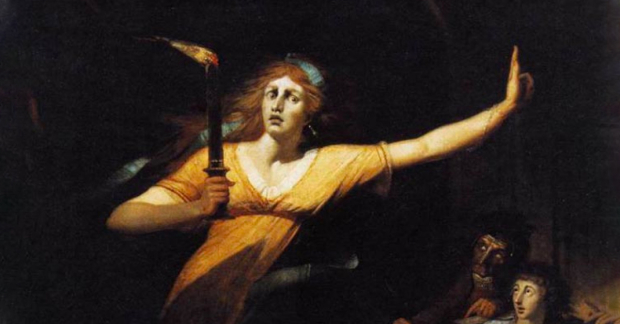Shakespeare's plays are far more action-packed than you'd imagine
The host of the Shakespeare in Quarantine podcast blogs about the playwright’s birthday

This week is Shakespeare's birthday! It seems fitting to unveil some interesting facts about these plays. The genesis behind each of these stories is fascinating.
For instance, did you know that Shakespeare's inspiration behind Hamlet is connected to the death of his own son called Hamnet? The story as we know involves a man called Hamlet looking to avenge his father's death. This paternal relationship between father and son clearly holds the centrepiece of the narrative.
Another interesting backstory is aligned to Macbeth. Shakespeare used witchcraft as a device to appease the then seated king James VI who feared this hugely. Shakespeare was also very heavily inspired by Italian culture with so many of his plays being set there. Legend has it that he travelled there in the 1580's and 90's in what became known as the ‘lost years' and consequently became inspired by the countries romance and beauty to provide the appropriate backdrop.
It must be said though that originality was not a consistent trait in all of his works and he did enjoy the odd pinch. Romeo and Juliet was inspired directly from a poem called The Tragicall Historye of Romius and Luliet. He also took inspiration from Chaucer in huge amounts of his work and also borrowed from lots of Latin and Greek authors as well.
The lines are very much intended to be said, not read
However, all creativity descends from a predecessor of some kind and his imagination knew no bounds. Whether it is the classic case of heart against head involving characters such as Prince Hal and Hamlet or the lovers who must survive against a tidal wave against them in Romeo and Juliet or even stories inspired by otherworldly magical themes such as A Midsummer Night's Dream and The Tempest; his stories are and will always be timeless.
I think it's important to encourage audiences to either read or watch these great plays, now more than ever. He wrote for his actors and the lines are very much intended to be said, not read. That is why his work is so visually important as well. From reading his plays you gain so much from the language but in plays such as Macbeth and Titus Andronicus for instance, they are far more action-packed than you'd ever imagine and you really don't want to deny yourself the joy of the visual experience.
All in all, he is the greatest story teller to ever draw breath and his characters feel just as alive today as they did in the 16th century; if not more so in some cases. If that doesn't merit a birthday nod then I don't know what does.
Happy 456th Bill!
Jimmy Walters runs the Shakespeare in Quarantine podcast – you can find out more here.












